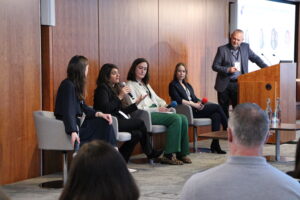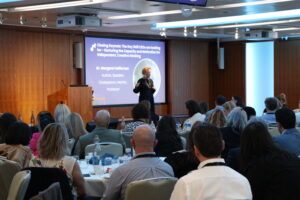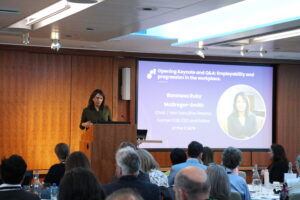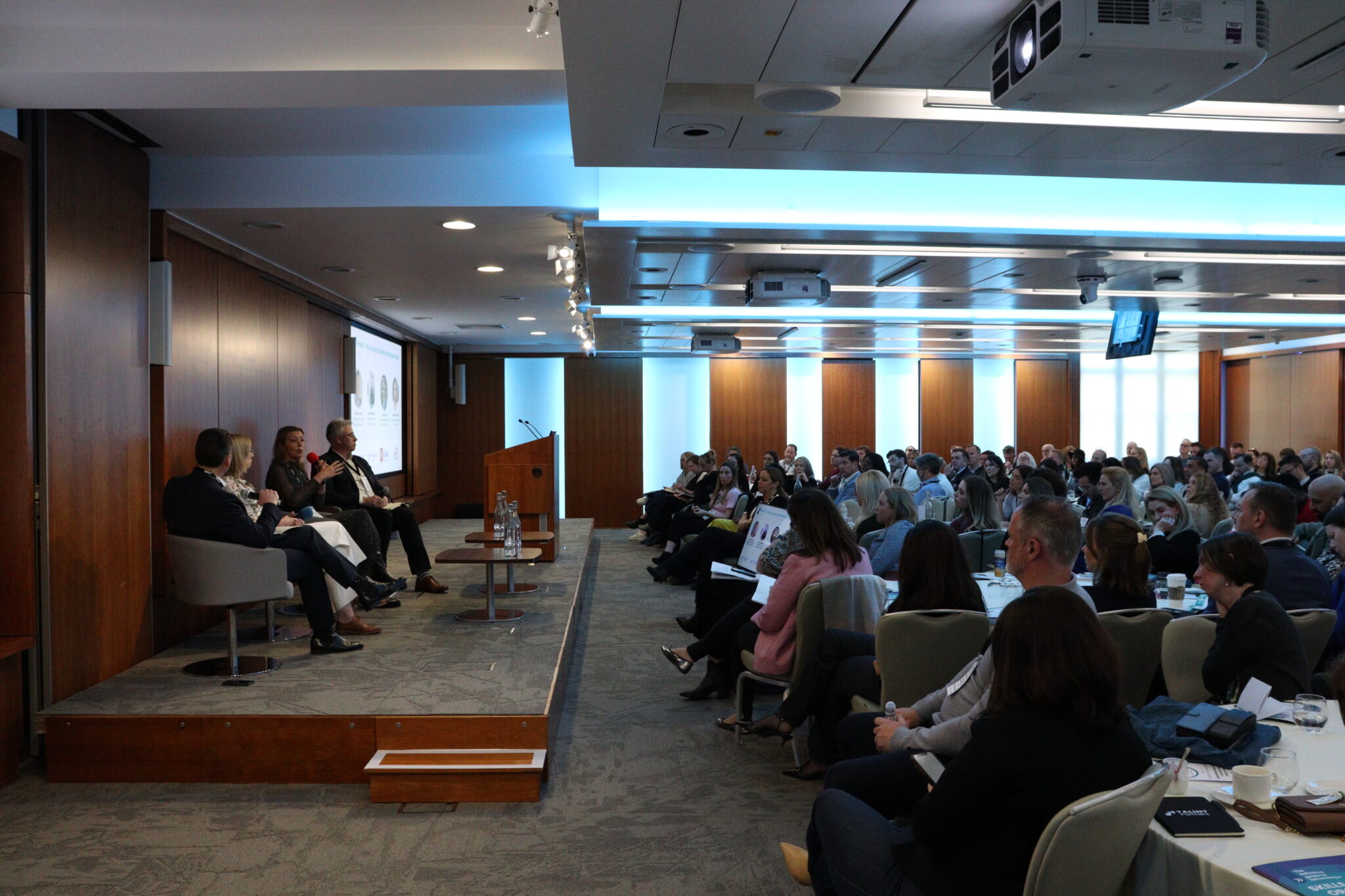As organisations shift towards skills-based hiring, our Future of Talent conference explored this transformation through keynotes, panels, and debates. Industry leaders shared insights on building skills-based organisations (SBOs) and the challenges involved.
Setting the scene: The rise of skills-based hiring
Founder and Chair Ken Brotherston highlighted that skills are the new currency for organisational success, driven by market changes and uncertainty. While the opportunities of this shift are significant, so are the risks.
“Opportunities this new paradigm gives us are enormous, but so are the risks.”
The roadmap: Key findings from our skills-based report
Jo Matkin and Mary Appleton discussed findings from The Definitive Guide to Becoming a Skills-Based Organisation. While 85% of businesses prioritise skills-based hiring, only 22% have a strategy in place. Leadership buy-in, technology, and continuous learning are crucial to success.
Keynote insights: Skills development for the future
Baroness Ruby McGregor-Smith addressed the evolution of employability, highlighting the need for lifelong learning beyond early careers. She stressed the importance of resilience, soft skills, and a culture that prioritises upskilling.
“You’ve got to build a culture of upskilling.”



Building an SBO: The journey and challenges
David Vincent (Randstad) led a discussion on implementing skills-based hiring. Sam Schlimper emphasised the role of AI in optimising work and freeing time for skilling.
“Gen AI isn’t there to replace people but to optimise people and enable learning.”
Duncan Ward (Fidelity International) highlighted the importance of skill mobility, while Maria McLachlan (Citi) reinforced the need for collaboration and data-driven decision-making.
“While technology is essential as an enabler, it shouldn’t drive the process.”
Harnessing technology: Data-driven talent development
Sandra Loughlin (EPAM) stressed that AI is integral to a skills-based strategy, enabling better workforce planning.
“A skills strategy IS an AI strategy.”
Abi Dudley (EY) likened an SBO approach to an iPhone – requiring the right operating system before adding advanced applications.
“Data is king and queen in this.”
Neeta Saggar (Coca-Cola HBC) cautioned that success lies in a business-led approach, embedding change across the organisation.
“Success lies in making the strategy business-led, embedding change, and ensuring everyone is part of the journey.”



Measuring success: Results and long-term impact
Mark Coad (GSK) stressed the need for ongoing assessment to validate skills.
“The journey doesn’t end – people saying they have a skill, do they actually have the skill?”
Sarah James-Bryan (De Beers) emphasised the cultural shift required for successful implementation, reinforcing the importance of engagement across the business.
The transition to a skills-based organisation is complex but essential for future success. The insights shared at the conference provide a roadmap for businesses navigating this transformation.
The Definitive Guide to Becoming a Skills-Based Organisation
“This report reshapes how to think about how we hire and develop people. Successful organisations will hire for skill and keep developing skills as a means of keeping valued, trusted people who understand the business.” Dr Margaret Heffernan
“As a CEO, this is a report I would want to read. It’s a practical guide with some great advice on how to move to being a skills-based organisation.” Baroness Ruby McGregor-Smith
The Definitive Guide to Becoming a Skills-Based Organisation can be purchased here.





